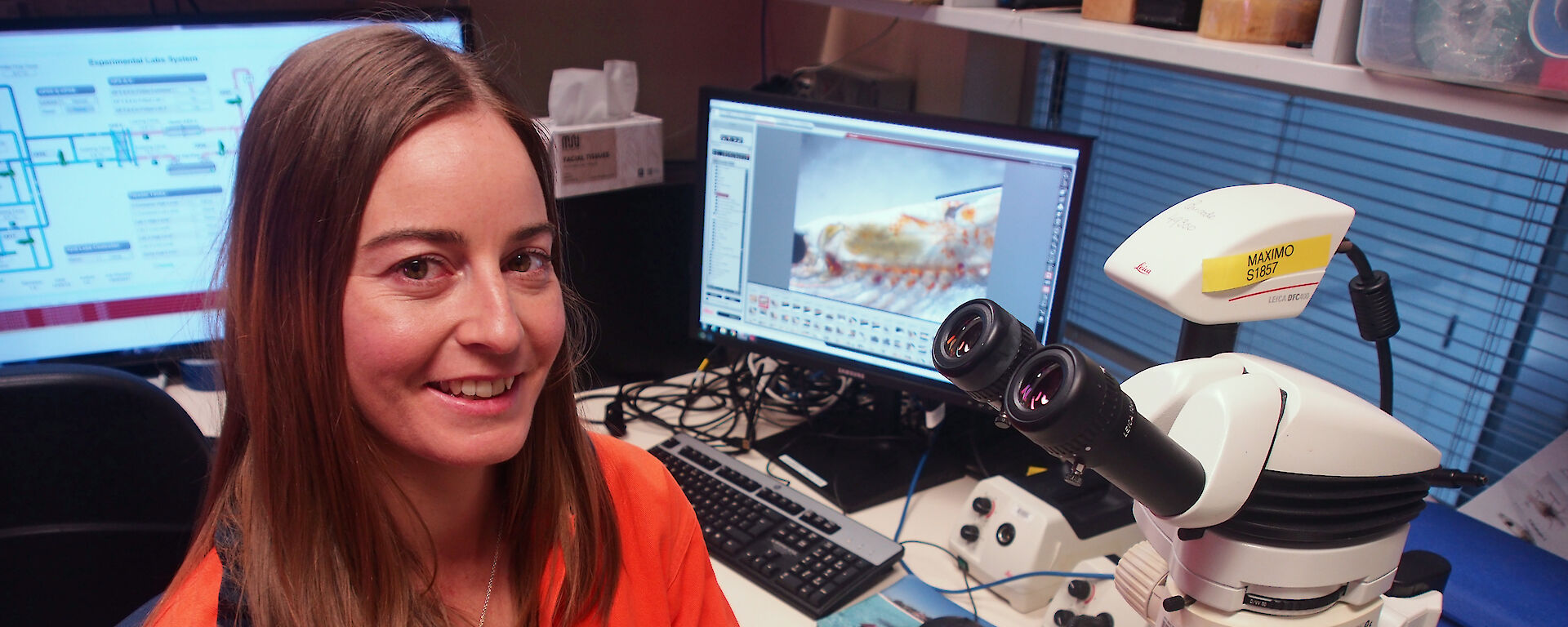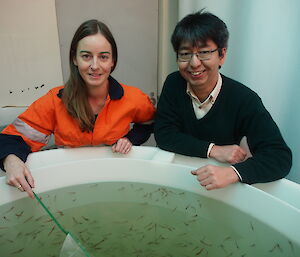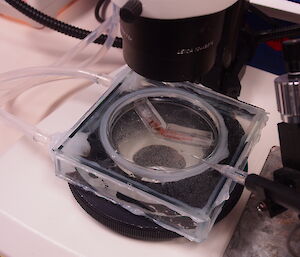Adult Antarctic krill have a secret weapon for survival in a high carbon dioxide world, according to new research published today in Communications Biology.
Australian Antarctic Program scientists have found adult krill have special ion pumps in their gills that allow them to maintain the pH of their body fluid (‘haemolymph’) under a wide range of carbon dioxide (CO2) concentrations.
PhD student Jessica Ericson, working with krill biologists Dr So Kawaguchi, of the Australian Antarctic Division, and Dr Patti Virtue of the Institute for Marine and Antarctic Studies, made the discovery after exposing adult krill to acidified seawater for one year.
“Oceans around the world are becoming more acidic as they absorb increasing amounts of CO2 from the atmosphere,” Ms Ericson said.
“Our research suggests adult Antarctic krill are resilient to this increasing ocean acidity and may not be affected by the predicted CO2 levels for the next 100 to 300 years.”
Ocean acidification has been proven to have negative effects on some marine organisms, reducing their ability to form shells, decreasing or delaying growth and reproduction, and causing abnormalities in offspring.
However Ms Ericson found that adult krill were able to survive, grow and reach sexual maturity when exposed to predicted near-future CO2 levels.
“The krill were able to maintain the pH of their haemolymph and this may be the key to their successful survival, maturity and growth in a future high CO2 world,” Ms Ericson said.
“In contrast, eggs and embryos have no capacity to regulate the pH of their extracellular fluid, so they are totally at the mercy of their environment.”
Ms Ericson cautioned that the ability for krill to maintain their haemolymph pH beyond one year and into their spawning season is currently unknown.
Her experiments also provided a constant food supply, rather than the regionally and seasonally variable food supply experienced by wild krill, which may have enabled the experimental krill to maintain their normal physiology.
While her research offers hope that this critical Southern Ocean species will endure in the face of climate change, Ms Ericson said the overall resilience of Antarctic krill will depend on long-term effects occurring at all life history stages, and how krill respond to ocean acidification in combination with other changes, such as ocean warming.
Previous research at the Australian Antarctic Division has shown that krill egg hatch rates and embryonic development were impaired as ocean acidity increased.
The research was a collaboration between the Australian Antarctic Division, CSIRO, Institute for Marine and Antarctic Studies, Aker Biomarine and Griffith University through an ARC Linkage grant LP140100412.
Research Paper DOI: 10.1038/s42003-018–0195-3




